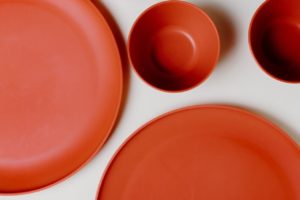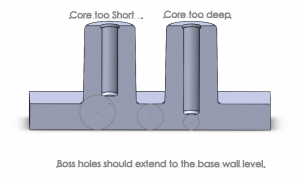Look around the room — how many of the items you can see within plain view have plastic as part of their construction, in whole or in part? In most places around the world, you can find plastics in use for almost any application imaginable. From the plastic packaging that keeps potato chips crisp and fresh to the injection-molded case of your television remote, we touch and handle plastics frequently every day. These plastics, however, are often consumer or commodity-grade.
Plastics for special applications, heavy-duty use, and specific circumstances often differ from the high- or low-density polyethylene resins that make up the most common consumer products. When quality, durability, and other product attributes are a primary concern, engineering plastics comprise an entire category of materials designed for specific purposes and usage scenarios. What do you need to know about these materials? Let’s first consider what defines engineering plastic before exploring the most common polymers and some of their typical real-world applications.
What Makes Engineering Grade Plastics Different?
Put simply, engineering plastics are those polymers chosen or created to achieve specific engineering purposes because of the material’s characteristics. For example, a plastic component in an industrial piece of machinery may need to withstand high heat without deforming or softening. An impeller inside a pump might need to exhibit exceptional resistance to chemical damage and corrosion to provide a long service life. These are just a few general examples of the many applications for engineering plastics, but they all go beyond the demands of typical consumer plastics.
A Quick Overview of Common Engineering Polymers
So what materials qualify as engineering plastics, and how do manufacturers use them today? It’s important to remember that the suitable plastic for a part depends on more than just its chemical resistance or endurance in hot environments. The physical properties of the plastic as it melts and flows into the mold will have an impact on your choices, too. With that in mind, let’s look at some of the most widely used polymers today.
- ABS
One of the most popular and common materials for injection molding with engineering applications, ABS is also well-known for its use as a printing filament in 3D printers. Short for Acrylonitrile Butadiene Styrene, ABS is unsuitable for environments with potential flame exposure or consistently high heat. However, it exhibits good chemical resistance and is durable enough to withstand heavy impacts without serious deformation. The automotive industry commonly uses ABS, especially as a component in bodywork for the vehicle. Dashboards may also feature ABS.
- Nylon
Also known as polyamide or PA, nylon plastics are exceedingly popular due to their high level of strength. Its extreme stiffness and chemical resistance make it well suited to heavy-duty applications. Molded parts can even undergo easy machining afterward for additional features or finishing. Nylon parts are so durable you can find them used in surprising places, such as in a replacement role for metal bearings. Nylon gears are also a common application due to the material’s stiffness.
- No-Break PP
No break polypropylene is a specialty polymer designed for heavy-duty use cases where the material must stand up to repetitive use and potential impacts. Its robust impact resistance lends the material its name. It also features the other positive aspects of PP, such as non-reactivity to common chemicals, durability and ability to withstand cracking.
- PMMA
Poly methyl methacrylate is better known as acrylic. Its applications in widespread use across many industries include everything from airplane windows and hockey arena barriers to various architectural purposes. Acrylic is also an excellent candidate for insert molding, combining the polymer with metal components.
- PEEK
Polyether ether ketone, or PEEK in industry parlance, is one of the toughest polymers on the market today. Its high melting point and strong physical properties make it a capable solution when manufacturers need to design parts that must function for long life cycles in critical applications. Today, you can find PEEK molded into everything from bearings to high-volume pumps and even as high-pressure seals inside hydraulic pistons.
- FST Resins
When many plastics burn, they release toxic gases that can harm anyone nearby. FST resins help prevent or slow this danger. As a class of composite materials, they combine the properties of multiple polymers to achieve the desired outcome. FST stands for “flame, smoke and toxicity,” and these resins often have retardant properties. As a result, when exposed to fire, they will take far longer to catch, produce much less smoke, and generally provide more time to extinguish the fire or escape the hazard. FST resins are a significant focus in the automotive and aerospace industries.
- Ultem
Another highly advanced and proprietary resin, Ultem, was engineered for a specific purpose: to capably replace metal parts in a wide variety of products. With excellent heat resistance, food-safe properties, and long-term durability, you’ll find it used for applications including microwave ovens, switches, electronic connections, and even air conditioners.
Choosing the Right Materials for Your Project
Ultimately, there is an expansive variety in choosing an engineering plastic for an applicationwith specific demands. Not only are there many proprietary solutions and special products, but new resins and polymers continue in development today. Selecting the right plastic based on its specific properties, flaw rate, melting temperature, and more is a critical step. Without the correct choice, the manufacturing process can be a continuous source of headaches.
At Reliant Plastics, we have proven experience working with many of the most advanced engineering plastics on the market today. Highly familiar with their properties and best use cases, we can guide our partners toward smart choices — and provide support for the entire molding and manufacturing process from end to end.
Explore solutions for working with advanced engineering plastics and successfully executing your next manufacturing project. Speak with us today to get started.




